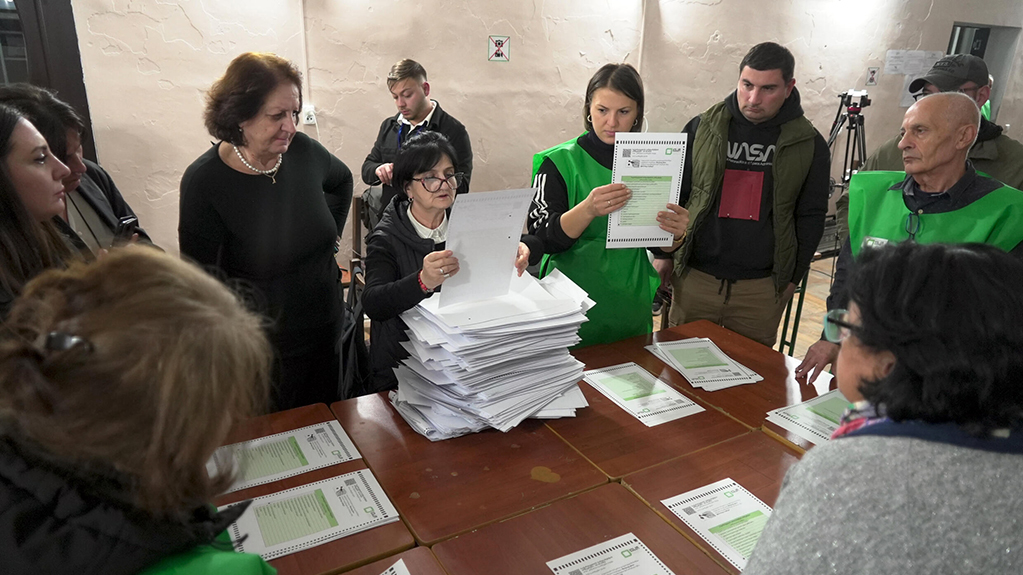The International Society for Fair Elections and Democracy (ISFED) does not plan to publish the results of the parallel vote count for the parliamentary elections. In a statement released by the organization, ISFED noted that, given the range of violations, the election results may not accurately reflect the will of Georgian voters.
News
Trending stories
- 1 Former Prime Minister Garibashvili Sentenced to Five Years in Prison After Plea Deal
- 2 Otar Partskhaladze Charged with Organizing Murder of Businessman Levan Jangveladze
- 3 Shalva Papuashvili Says Georgian Dream Filed Complaint with BBC
- 4 Georgian Dream Party Further Tightens Grants Law, Introducing Up to 6 Years in Prison
The verification of results from the parallel vote count conducted by the organization aligns with the results announced by the Central Election Commission of Georgia. However, it cannot be taken as a measure of the election process's legitimacy, as fundamental violations observed during the pre-election period and on election day compromised the free expression of voter intent.
Violations uncovered in the pre-election period - including voter pressure, intimidation, confiscation of ID cards, collection and processing of personal data, and voter bribery - seriously undermined confidence in the elections.
On election day, Fair Elections reported serious violations, such as ballot-stuffing, multiple voting, large-scale voter bribery, and the expulsion of observers from polling stations. Additionally, the organization documented instances of voter mobilization outside precincts, collection of personal data, and manipulation of voter intent. In light of these combined violations, ISFED believes the results may not genuinely reflect the voters' will. Therefore, the organization does not intend to publish the detailed results of the parallel vote count.
A statement summarizing election day observations highlighted widespread issues during the voting process nationwide. At 9% of polling stations, the secrecy of voting was breached, with similar numbers reporting issues related to checking and marking voters. Instances of unlawful restrictions on observers’ rights, intimidation, verbal and physical abuse, and expulsions from polling stations were also noted. According to ISFED, mass ballot-stuffing and multiple voting were recorded in several precincts. Observers found that at 31% of polling stations, party coordinators registered voters on the outer perimeter, and at 11% of polling stations, instances of verbal and physical confrontations, as well as threats, were observed. Organized transportation of voters was detected at 19% of polling stations, while alleged voter bribery was reported at 13% of the perimeters surrounding the stations.















